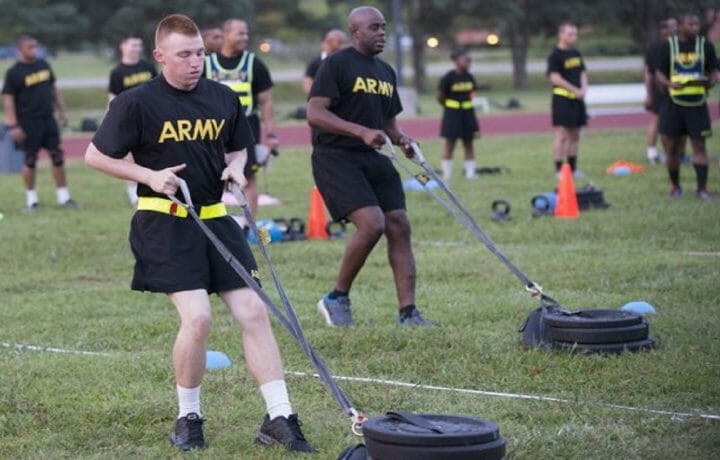Changing the culture of fitness: This is the goal of the Army Combat Fitness Test or ACFT. In less than one year the Army will shift it’s fitness readiness standards from the current age and sex based Army Physical Fitness Test to the ACFT’s occupation-based fitness readiness standards.
With the ACFT gender and age are being completely thrown out the window and it won’t matter if you’re 25, 45, a male, or a female, your physical readiness will now be based on your military occupation. That means if you have a 25-year-old male and a 45-year-old woman with the same military occupational specialty or MOS they will be expected to perform at the same fitness level.
And that fitness level will be based on the six ACFT events which include a Strength Dead-Lift, Standing Power Throw, Hand-Release Push-Ups, Sprint-Drag-Carry, Leg Tuck, And the 2-Mile Run
Every MOS will be given a color code — either gold, gray, or black. Black is the highest category, for soldiers in the most physically demanding jobs, gray is for those with “significant” physical requirements, and gold is for “moderate” demand jobs. These categories will determine ACFT passing scores, regardless of age or gender.
With these codes attached to a MOS, if your MOS is given a black code and you can’t meet that fitness standard then you may have to re-class to a MOS whos designated fitness standards you can meet.
While this might sound harsh, soldiers who could not meet the fitness standards for the APFT were discharged from service. With the ACFT, at least soldiers who do not meet their MOS color code will be allowed to reclassify their MOS and continue their service.
In theory, the ACFT sounds great but after nearly 40 years of using the APFT, there have been a lot of doubts surrounding the ACFT.
In September of 2019 ACFT statistics were leaked and the numbers were jaw-dropping.
30% of men and 84% of women failed. Army leadership argues this is simply the adjustment period for the new test – figures will improve. Official training for the ACFT began in October of 2019, and the first ACFT on record will be in 2020. For critics, the good news is the Army has already made minor adjustments to the ACFT – if the test continues to prove troublesome, we may see more in the months to come.




